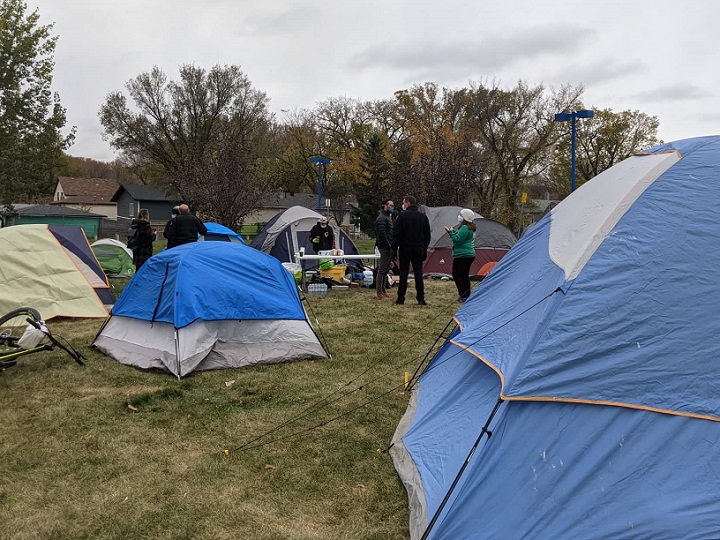The Federation of Sovereign Indigenous Nations (FSIN) is calling on the Saskatchewan government to change the policies within the Saskatchewan Income Support (SIS) program, which claims to be putting those who rely on SIS at risk of ending up on the street.

The provincial income assistance program was formerly known as the Saskatchewan Assistance Program (SAP), through which rent and utilities were paid directly to landlords. Through the SIS program, the financial supports for housing and utilities are allocated to the client instead.
The financial assistance meant for rent and utilities were spent in other ways leaving many evicted and homeless.
On Monday morning, FSIN chiefs met with folks at Camp Majorie to discuss a temporary solution.
“We are going to be looking at pursuing a partnership with the City of Regina and with RT/SIS to be able to address this need, to provide the supports and to get these people out of these tents and to get these people into safe and secure living quarters,” said FSIN vice-chief David Pratt.
“There will be a strategy forthcoming that will be developed by RT/SIS today.”
Regina Treaty/Status Indian Services (RT/SIS) is a human resources agency that provides assistance, services and programming to Indigenous peoples in the city. They will be working with the City of Regina, Regina Police Service, Red Cross and the Regina Fire Department along with Social Services to help create better alternatives for those impacted by the SIS program.
“We know there are enough homes for people but we also know there aren’t the type of supports that are required,” said RT/SIS executive director Erica Beaudin. “There’s also aren’t the type of supports that are long-term that we require in order to do the work.”
FSIN is requesting that Provincial Minister of Social Services Lori Carr do an internal review of the policies that have impacted people especially when it comes to the SIS program.
“The SIS program that’s not working,” said Chief Pratt.
Carr said they are working as they watch results come in as any changes that may need to be made. She added that Camp Marjorie is a consequence of what people see as homelessness but the fact that they set up really does bring it to light.
When Minister Carr was asked if they plan on changing the SIS program, she says it has only been fully implemented for two months and they are willing to help move people indoors.
“We just got to work on the last batch of people that were transitioned over,” she said. “It might take a little bit more intense one-on-one work with those clients but we’re willing to do it.”
The formed partnerships are hoping to secure a building to move the camp indoors within seven days.
The SIS program was fully implemented on Sept. 1st, 2021 and Camp Marjorie was set up before the Thanksgiving long weekend.





Comments